Presentations
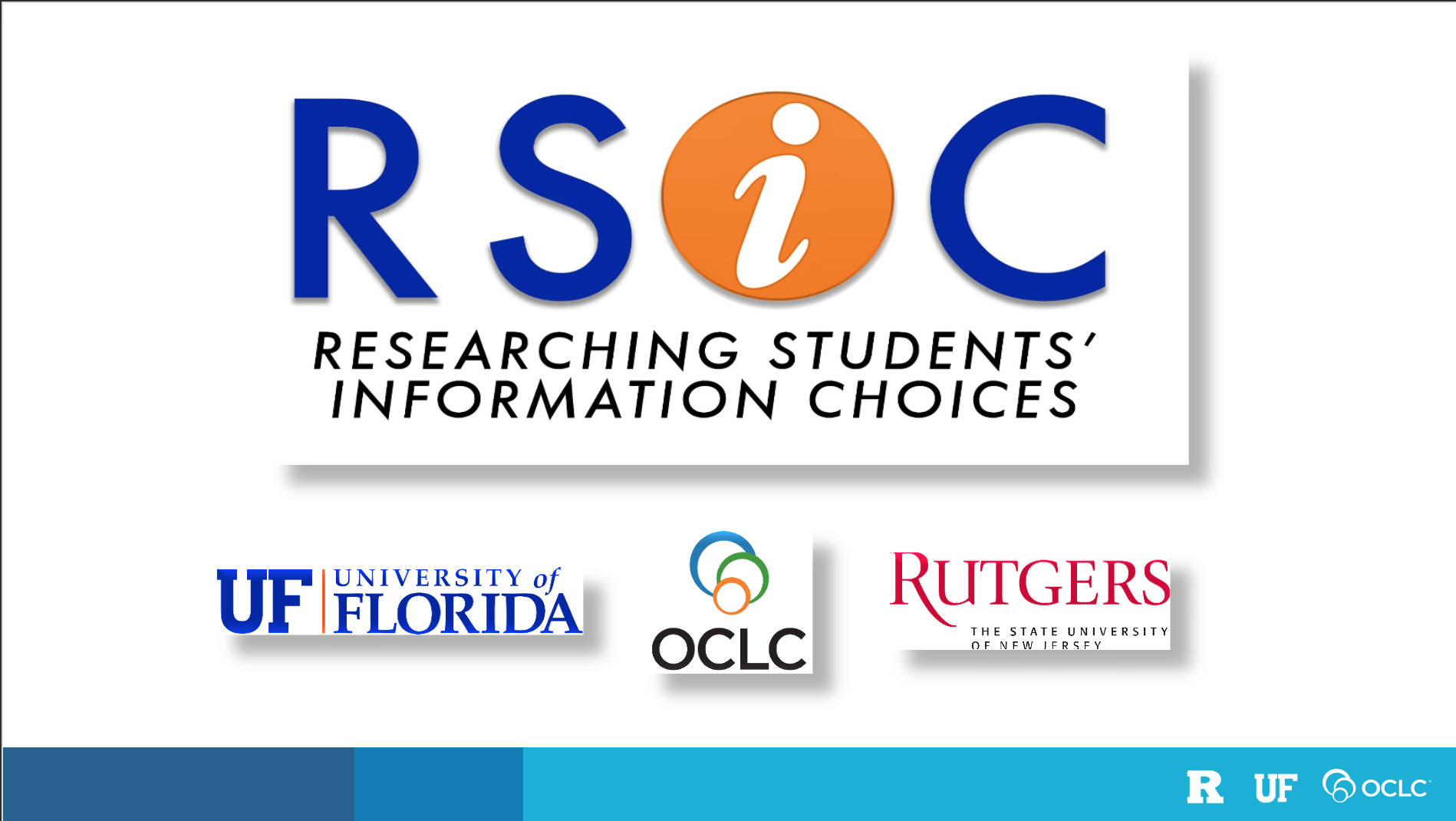
Cues and Clues—How Students Identify Online Resources in the Face of "Container Collapse" (video)
This presentation focuses on the search behaviors and demographic characteristics that impact students’ ability to identify the container of resources that they retrieved from a simulated Google search and is followed by a discussion on the implications for information literacy.
Topics: Research Methods, Works in Progress
![“It [my research] would take place at 11:50PM”: Constructing a Realistic Simulation to Study Online Information Evaluation for School Projects](/content/dam/research/presentations/2021/RSIC%20GICOIL%20Presentation%20-%20Final.pdf.thumb.1280.1280.png)
“It [my research] would take place at 11:50PM”: Constructing a Realistic Simulation to Study Online Information Evaluation for School Projects
When students explore a search results page for a school-related project, what leads them to select a resource? Learning how and why students select and evaluate resources for research projects in real time can be challenging. In this session, the authords discussed how they developed and deployed simulated search engine results pages to overcome methodological challenges and capture rich data on how students 4th grade through graduate school evaluate online resources.
Topics: User Research, Research Methods
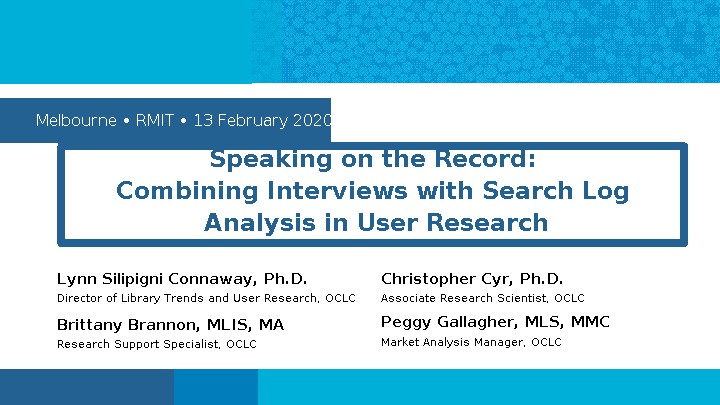
Speaking on the Record: Combining Interviews with Search Log Analysis in User Research
Melbourne, Australia
OCLC Research presents a novel user research methodology that combines log analysis with semi-structured interviews to determine how library users navigate the path from discovery to access. Indications are, “The methodology used for this study also could be extended beyond discovery systems. Other computerized activities that leave digital traces could be studied using interview protocols based on log analysis.”
Topics: User Research, Research Methods
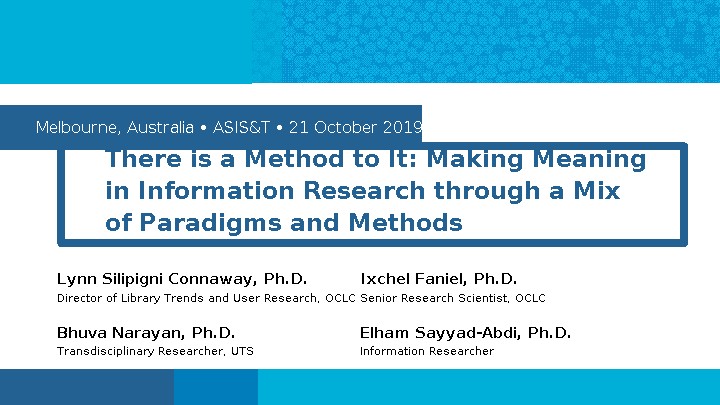
There is a Method to It: Making Meaning in Information Research through a Mix of Paradigms and Methods
Melbourne, Australia
Researchers share the prevalence of survey research, review qualitative and mixed-method studies, and provide real-world examples with Worldcat Discovery search log analysis.
Topics: Research Methods
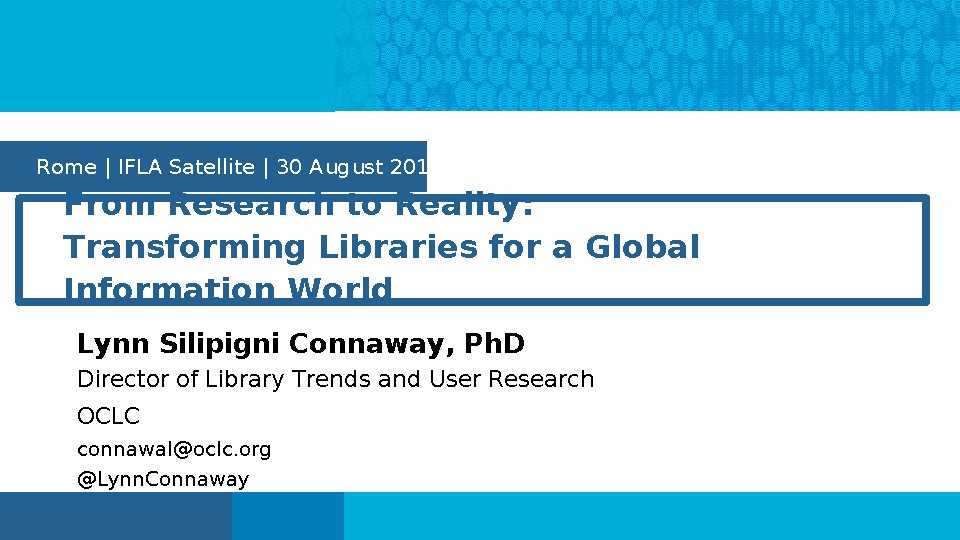
From Research to Reality: Transforming Libraries for a Global Information World
Athens, Greece
Lynn Silipigni Connaway details research methods and techniques used in library and information science, the most popular research methods used in LIS, what we’ve learned from mixed methods research, and why teaching research methods is important. This was a keynote presentation at IFLA 2019.
Topics: Research Methods
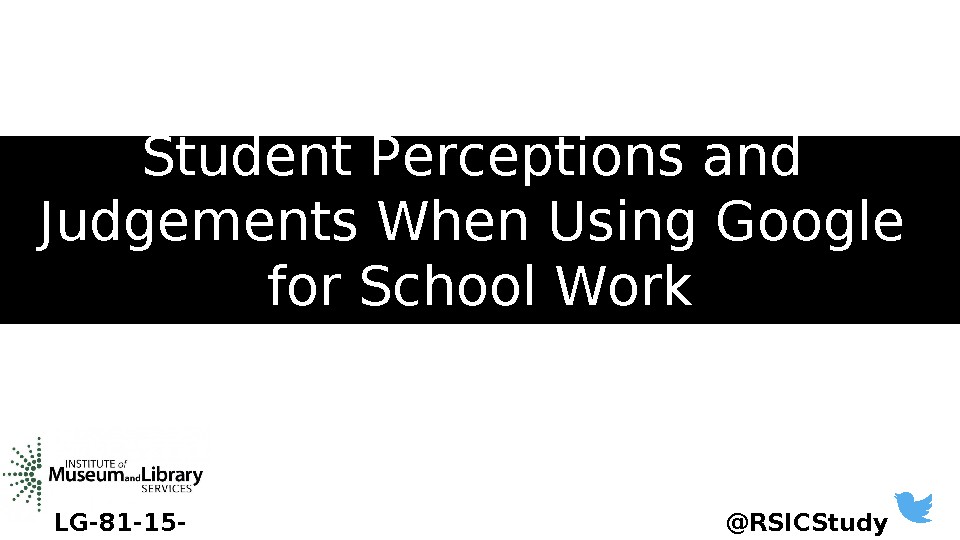
Authority, Context, and Containers: Student Perceptions and Judgements When Using Google for School Work
Athens, Greece
Two of the investigators of the “Researching Students’ Information Choices” project provide an in-depth update on this project that examines and compares the judgments and perceptions of students as they select resources for science-related school inquiry projects.
Topics: Information Literacy, Research Methods
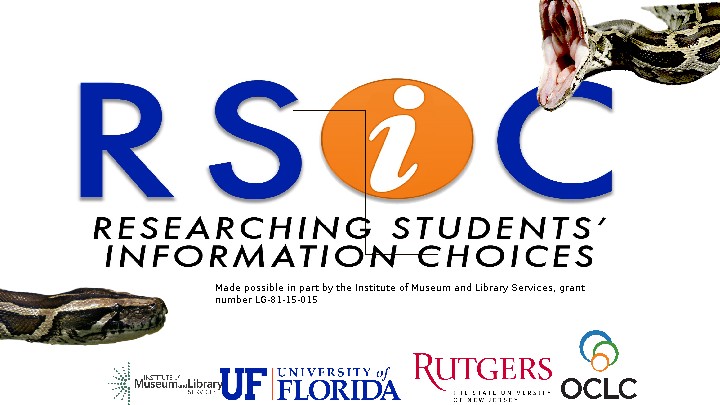
Container Collapse: Student Search Choices and Implications for Instructional Interventions
Washington, DC (USA)
This update from the project Researching Students’ Information Choices (RSIC) includes research and information concepts, methods, and the idea of “container collapse,” which describes the obscuring of information sources from the print containers that once provided visual context and cues to help individuals identify the documents’ origins.
Topics: Information Literacy, Research Methods
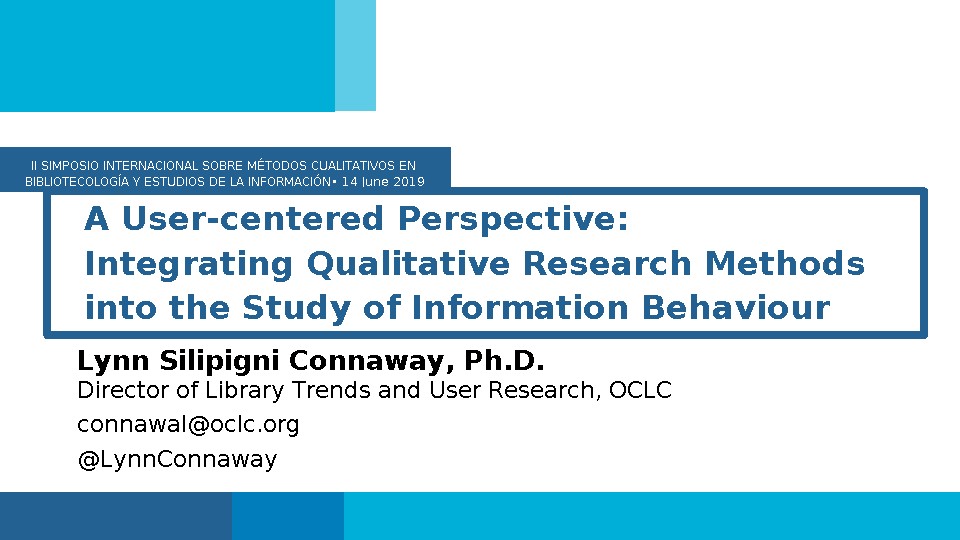
A User-Centered Perspective: Integrating Qualitative Research Methods into the Study of Information Behavior
Mexico City (Mexico)
In this keynote presentation, Silipigni Connaway delves into data collection methods, information behavior research methods, making a case for qualitative research methods and providing examples in recent research of how this has been implemented.
Topics: Research Methods
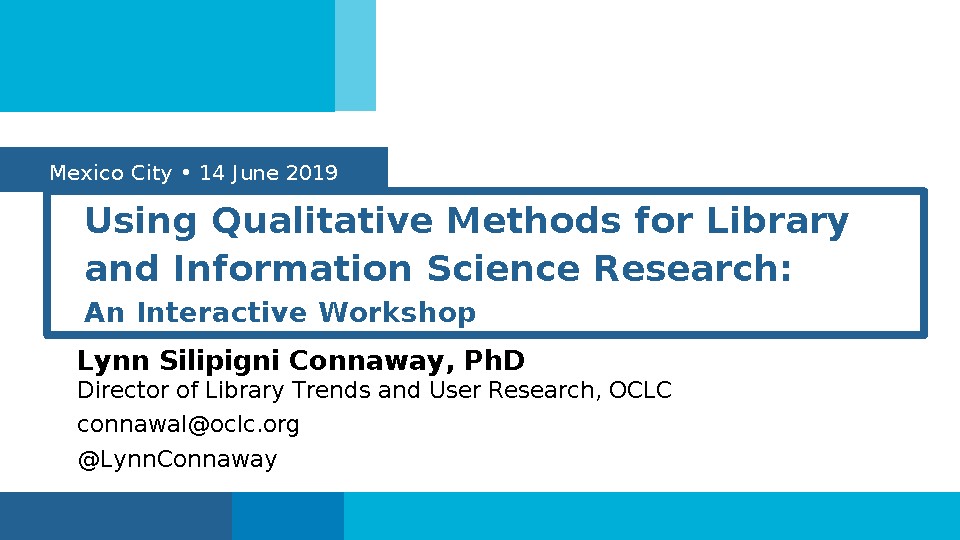
Using Qualitative Methods for Library and Information Science Research: An Interactive Workshop
Mexico City (Mexico)
In this workshop, participants learned about qualitative research data collection methods and tools, focusing on interviews, structured observations, usability testing, and ethnographic research. Participants also went through a few exercises to put the knowledge into action.
Topics: Research Methods
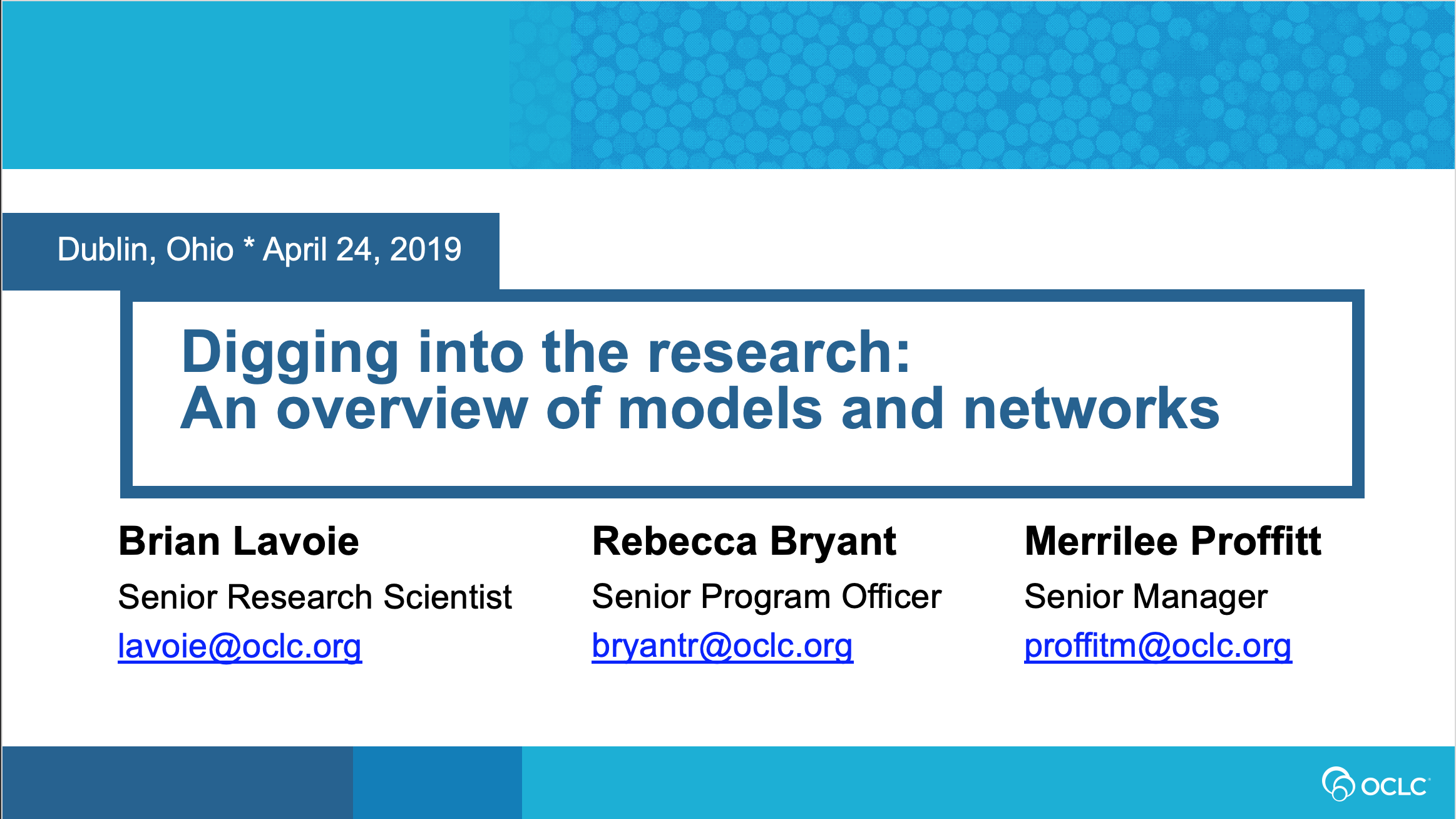
Digging into the Research: An Overview of Models and Networks
Three researchers and program officers share how OCLC Research develops models to help research libraries (and others) with sensemaking, striving for our models to be useful and to facilitate big picture thinking.
Topics: Research Methods